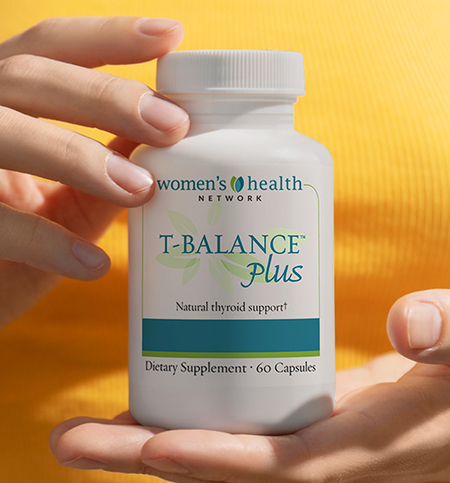By WHN Editorial Team
What you eat can affect your thyroid gland as well as your body’s ability to use thyroid hormone — for better or worse. So many foods offer wonderful support for healthy thyroid function, but on the flip side, other foods contribute to thyroid dysfunction and symptoms of low thyroid. If you are feeling tired all the time, gaining weight or noticed that your hair is dull and brittle, it’s time to take a careful look at your diet and get rid of foods and cooking practices that could be putting your thyroid at risk.

Are you making these food mistakes?
You’re not eating sea vegetables
Your thyroid simply can’t function without iodine. If you’re deficient, your thyroid lacks a basic building block for producing adequate amounts of thyroid hormones. In the United States, conventional table salt is fortified with iodine to provide the mineral, but women who eat non-iodized sea salt or a reduced salt diet may not be getting enough. To boost your iodine intake, start eating more foods that are naturally rich in iodine, including sea vegetables (kelp, dulse, hijiki, nori) and seafood (clams, shrimp, haddock, oysters, salmon, sardines).
Other good secondary sources of iodine include eggs, asparagus, lima beans, mushrooms, spinach, sesame seeds, summer squash, Swiss chard and garlic. Women experiencing symptoms of low thyroid may need iodine supplementation for extra nutritional support.
You’re still eating gluten
If you know or suspect that you may have Hashimoto’s syndrome, an autoimmune disease that harms thyroid function, consider going gluten free. Multiple research studies have associated gluten sensitivity with Hashimoto’s low thyroid; when gluten is eaten, it’s a trigger for the syndrome’s autoimmune attack on the thyroid. We’ve found that most women do not even know they have a gluten sensitivity, but when they remove gluten-containing foods from their diet, they suddenly feel much better and notice fewer problems with their thyroid.
You’re not thyroid-proofing cruciferous vegetables
Broccoli, cauliflower, cabbage, Brussels sprouts and other cruciferous vegetables contain goitrogens, which are compounds that make it more difficult for the thyroid gland to create its hormones. Eaten in their raw state, these veggies can pose harm to the thyroid, especially for women already struggling with low thyroid. No one is arguing that these vegetables are unhealthy, given that they are filled with vitamins, minerals, antioxidants and a variety of nutrients we all need! Instead, it’s all about preparing them to reduce the risk of getting too many goitrogens. To give cruciferous vegetables a thyroid-friendly makeover, all you need to do is steam or sauté before eating, which effectively reduces their goitrogenic properties.
Your sweeth tooth is untamed
Getting too much sugar in your diet increases your risk of inflammation — a root cause of chronic disease in the body. Inflammation is especially harmful to the thyroid. According to the American Thyroid Association, inflammation increases your chances for developing thyroiditis (inflamed thyroid), thyrotoxicosis (high thyroid hormone levels in the blood) and hypothyroidism. To fight inflammation, eliminate foods in your diet made with added sugar. Choose whole fruits over sweetened desserts, and don’t forget to check for hidden sugars in everyday items like salad dressing!
You can’t go a day without deli meats
Processed meats or anything that says “meat product” on the label, like hot dogs and packaged sandwich meats, often contain nitrates and artificial additives that can aggravate the thyroid and trigger dysfunction. The next time you make a sandwich (on gluten-free bread or a lettuce wrap), try healthier alternatives like roasted chicken or turkey or egg salad.
You’re letting kale put the kibosh on your iodine levels
Kale may be the king of leafy green vegetables, but when eaten raw, kale can prevent the thyroid from absorbing adequate levels of iodine due to interference from a specific goitrogen compound in kale called thiocyanate. This doesn’t mean that kale is necessarily on the list of foods to avoid if you have thyroid issues. But it does mean that you need to cook it first — steaming or roasting the leafy green breaks down the thiocyanate and prevents it from taking nutrients from your system. If you like raw kale, just limit servings to one or two per week.
You’re packing too much plastic
Your thyroid is part of your body’s endocrine system, and you can disrupt it by heating food in plastic, a known source of endocrine-disrupting chemicals. Endocrine disruptors work by mimicking naturally occurring hormones in the body, like thyroid hormones. Keep your thyroid safe by using plastics marked BPA-free (BPA is a common endocrine-disrupting chemical). Better yet, heat foods in microwave-safe ceramic bowls and plates, and store foods in glass containers.
Learn more about how to support your thyroid health with foods.











